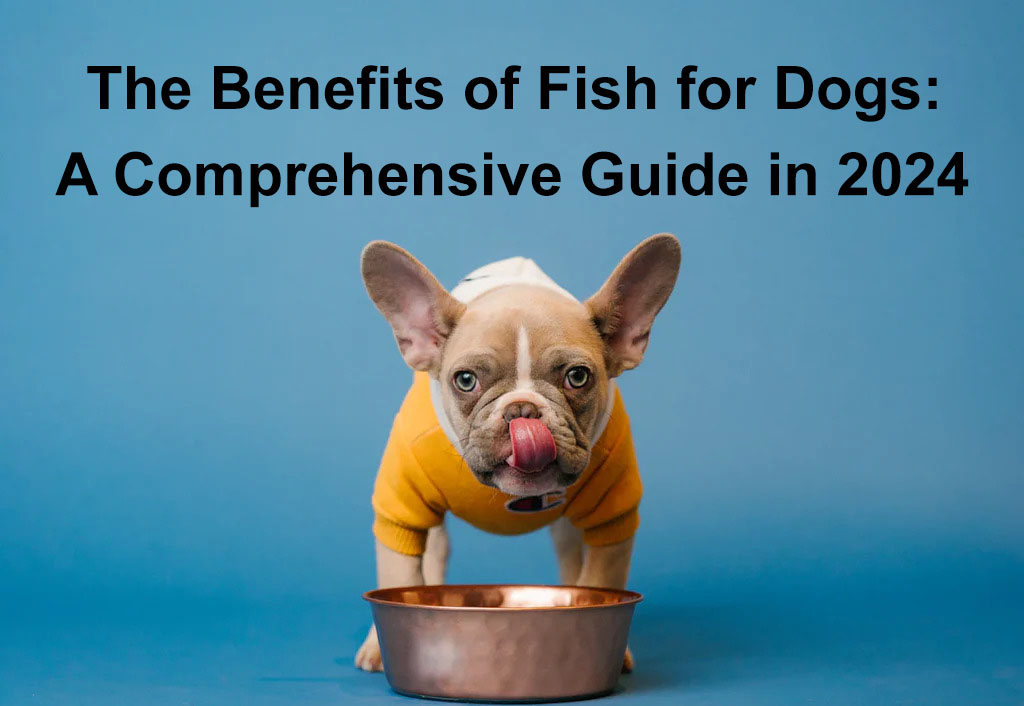When it comes to choosing the best diet for our furry companions, the options can be overwhelming. Among the various protein sources, fish stands out as a nutritious choice for dogs. This article delves into the benefits of incorporating fish into your dog’s diet, how to safely prepare it, and the best types of fish to consider.

Why Fish is a Great Protein Source for Dogs
1. Rich in Omega 3 Fatty Acids
Fish is renowned for its high omega 3 fatty acid content, particularly EPA and DHA. These essential fats play a crucial role in maintaining your dog’s overall health. Omega-3s support skin and coat health, reduce inflammation, and improve joint mobility. They can also enhance cognitive function and promote heart health.
2. High Quality Protein
Fish is an excellent source of high quality protein, which is vital for muscle growth, tissue repair, and energy. Unlike some land based proteins, fish is less likely to cause allergic reactions in dogs, making it a suitable option for those with food sensitivities.
3. Nutrient Rich
In addition to omega 3 fatty acids, fish is packed with essential nutrients, including vitamins D and B12, iodine, selenium, and phosphorus. These nutrients contribute to a balanced diet and support various bodily functions, from metabolism to immune response.
Read Also:Ibomma Telugu Movies
Types of Fish Suitable for Dogs

Not all fish are created equal when it comes to canine consumption. Here are some safe and nutritious options:
1. Salmon
Salmon is a favorite among dog owners due to its high omega 3 content and palatable taste. However, it should always be cooked thoroughly to eliminate the risk of parasites.
2. Sardines
Sardines are small, oily fish that are packed with nutrients. They are usually sold canned and can be a convenient addition to your dog’s diet. Opt for sardines packed in water without added salt.
3. Pollock
Pollock is a white fish that is low in fat and a good source of protein. It is often used in commercial dog foods and is safe for dogs when cooked properly.
4. Herring
Herring is another oily fish rich in omega-3s. It can be served fresh or canned, but make sure to check for any added preservatives.
5. Trout
Trout is a freshwater fish that is safe for dogs to eat, provided it is cooked to kill any potential parasites. It offers a similar nutritional profile to salmon and can be a tasty alternative.
How to Prepare Fish for Your Dog

1. Cooking Methods
When preparing fish for your dog, avoid frying or adding oils and seasonings. Instead, opt for these healthy cooking methods:
- Baking: Place the fish on a baking sheet and cook at 350°F (175°C) until it flakes easily with a fork.
- Boiling: Boil the fish in water until fully cooked. Ensure no bones remain.
- Grilling: If grilling, ensure the fish is cooked thoroughly and free from seasoning.
2. Serving Sizes
The appropriate serving size of fish depends on your dog’s size, age, and dietary needs. As a general guideline, small dogs can have 1 2 ounces, while larger dogs can enjoy 3 4 ounces a few times a week. Always introduce new foods gradually to monitor for any adverse reactions.
3. Avoiding Harmful Fish
Some fish, like shark, swordfish, and king mackerel, can contain high levels of mercury, which can be toxic to dogs. Always research and choose fish that are safe and healthy for canine consumption.
Read Also: The Best Basenji Yodels – Best Guide 2022
Potential Risks and Considerations

While fish is generally safe and beneficial for dogs, there are a few considerations to keep in mind:
1. Allergies
Some dogs may be allergic to fish. Watch for signs such as itching, gastrointestinal upset, or unusual behavior after introducing fish into their diet. If you notice any adverse reactions, consult your veterinarian.
2. Bones
Fish bones can pose a choking hazard or cause internal injury. Always ensure that fish is deboned and served in bite sized pieces to prevent accidents.
3. Moderation is Key
While fish offers numerous health benefits, it should be fed in moderation. A balanced diet is essential, so fish should complement other protein sources rather than replace them entirely.
Conclusion

Incorporating fish into your dog’s diet can provide numerous health benefits, from improving coat condition to supporting heart health. With careful preparation and the right choices, fish can be a delicious and nutritious addition to your furry friend’s meals. Always consult with your veterinarian before making significant changes to your dog’s diet, and enjoy exploring the wonderful world of canine nutrition together!
Read Also: When Is An Aussiedoodle Full Grown – Best Guide in 2022